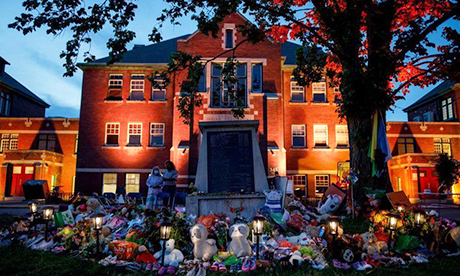A professor of theology at a university in Canada has labelled an indigenous group’s upcoming meeting with Pope Francis a ‘moment of crisis’ for Canadian catholics.
“It’s a moment of crisis – existential crisis – for catholics in the pews,” said Darren Dias, a theology professor at the University of St Michael’s College in Toronto.
“They may have disagreed with the Church’s teaching on artificial contraception or human sexuality, but now they see the church engaged in crimes and then coverups. This is really difficult for people. The question is: Will they change the Church from within, or will they just walk away?”
It has been seven years since the Truth and Reconciliation Commission of Canada (TRC) called on the Pope to apologise for the abuses at catholic-run residential schools.
But it took last year’s Kamloops announcement, accompanied by an internal backlash from shocked church members, to spur Canada’s bishops and the Vatican to take action.
Canadian bishops apologised last year, and indigenous leaders will be asking the Pope to apologise in their meetings with him in Rome.
On March 28-31, the Pope will meet with the indigenous groups individually, before a final group audience on April 1 in the Vatican. Members of the Canadian bishops’ conference will also take part.
Calls for a formal apology have grown in the last year. Several indigenous groups said ground-penetrating radar had found evidence of hundreds of unmarked graves at or near former residential schools.
Other critics are urging the Church to go beyond an apology and address other indigenous inequities. Doing too little, they say, risks further alienating a broad faction of catholics who’ve grown weary of scandal and inaction.
Professor Dias wants to see the Church champion the TRC’s calls to action – 94 recommendations covering everything from new legislation to education, health care and language rights.
According to some catholics, the church’s delayed apology for residential schools is reminiscent of its response to a decades-long sexual-abuse crisis. This was typified by a lack of acknowledgement, accountability and transparency.
